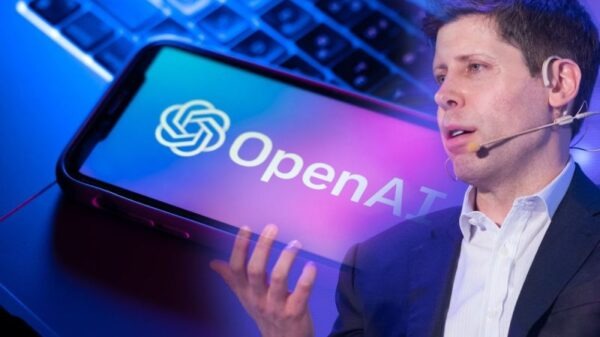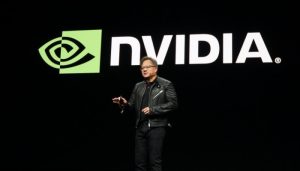OpenAI renews CEO Sam Altman’s board position
4 min read
Altman expressed relief that the investigation is over, acknowledging that he could have handled the dispute with the former board member more gracefully and carefully
OpenAI CEO and co-founder Sam Altman has been reinstated to the company’s board of directors after an external investigation into the events that led to his sudden dismissal and reappointment in November.
According to OpenAI, the investigation conducted by the law firm WilmerHale found that Altman’s removal was due to a breakdown in the relationship and loss of trust with the previous board. The investigation also concluded that Altman’s actions did not warrant his removal.
OpenAI remained largely silent for over three months regarding the circumstances that led to the dismissal of Altman by its then-board of directors on November 17. In a statement, the board accused Altman of lacking consistency in his communication and expressed a loss of confidence in his leadership abilities. However, less than a week later, Altman was reinstated as CEO following widespread internal discontent, including threats of resignation from many employees who demanded his return. This included board chair Greg Brockman, who resigned as the company’s president in response to Altman’s removal.
In addition to revealing the investigation’s findings, the maker of ChatGPT has appointed three women to its board of directors: Sue Desmond-Hellman, the former CEO of the Bill & Melinda Gates Foundation; Nicole Seligman, the former Sony general counsel; and Fidji Simo, the CEO of Instacart.
These actions are intended to demonstrate to investors and customers that the San Francisco-based artificial intelligence company is working to move beyond the internal conflicts that nearly led to its downfall last year and garnered global attention.
Many of OpenAI’s conflicts stem from its unique governance structure. Initially established as a non-profit with a goal of safely developing advanced AI for the benefit of humanity, it has evolved into a rapidly growing commercial entity still overseen by a non-profit board committed to its original mission.
An investigation published by the New York Times on Thursday provided insight into the circumstances leading to Altman’s removal, noting that OpenAI’s chief technology officer, Mira Murati, had questioned the CEO’s management style. Additionally, OpenAI co-founder and chief scientist Ilya Sutskever reportedly expressed similar concerns about Altman’s alleged “history of manipulative behavior.”
Altman hinted at these allegations during a call with reporters on Friday, expressing disappointment over individuals leaking information to create division and demoralize the team. He also mentioned that he has learned from the experience and apologized for a dispute with a former board member, acknowledging that he could have handled it “with more grace and care.”
“I’m relieved that this situation has come to an end,” he stated.
The investigation concluded that the previous board had acted within its authority. However, it also found that Altman’s “conduct did not warrant removal,” according to OpenAI. The organization affirmed that both Altman and Brockman remained the right leaders for the company.
“The review determined that there was a significant breakdown of trust between the former board and Sam and Greg,” Bret Taylor, the board’s chair, informed reporters on Friday. “It also concluded that the board acted in good faith, believing at the time that their actions would alleviate some of the perceived challenges and did not anticipate the ensuing instability.”
Following his unexpected removal, Altman, supported by a majority of OpenAI’s staff and its key business partner Microsoft, orchestrated a return that reinstated both Altman and Brockman to their executive positions and led to the departure of board members Tasha McCauley, Helen Toner, and Ilya Sutskever, although the latter retained his position as chief scientist.
Altman and Brockman did not immediately reclaim their board positions. Instead, an “interim” new board consisting of three men was established, with Bret Taylor, a former executive at Salesforce and Facebook who previously chaired Twitter’s board before Elon Musk’s involvement, leading the group. The other members were former US Treasury Secretary Larry Summers and Quora CEO Adam D’Angelo, the sole remaining member from the previous board.
OpenAI had engaged the services of the law firm WilmerHale to investigate the circumstances surrounding Altman’s removal. Throughout the investigation, OpenAI reported that WilmerHale conducted numerous interviews with the company’s former board, current executives, advisors, and other relevant individuals. Additionally, the law firm reviewed thousands of documents and corporate actions.
The board also announced plans to enhance the company’s governance structure. This includes the adoption of new corporate governance guidelines, the reinforcement of policies regarding conflicts of interest, the establishment of a whistleblower hotline for employees and contractors to submit anonymous reports, and the formation of additional board committees.
The company continues to face challenges, including a lawsuit filed by billionaire Elon Musk, who played a significant role in funding OpenAI’s early years and served as co-chair of its board after its establishment in 2015. Musk claims that the company is deviating from its original mission in favor of pursuing profits.
Legal experts have cast doubts on the viability of Musk’s arguments, which revolve around an alleged breach of contract.
Nonetheless, Musk’s lawsuit has prompted discussions within the company about its unconventional governance structure, the level of transparency it should maintain regarding its research, and its approach to achieving artificial general intelligence (AGI), or AI systems that can match or exceed human performance across various tasks.
OpenAI and Microsoft are also facing legal action from several news outlets, including the New York Times, the Intercept, AlertNet, and Raw Story, over allegations that their generative AI products violate copyright laws.



